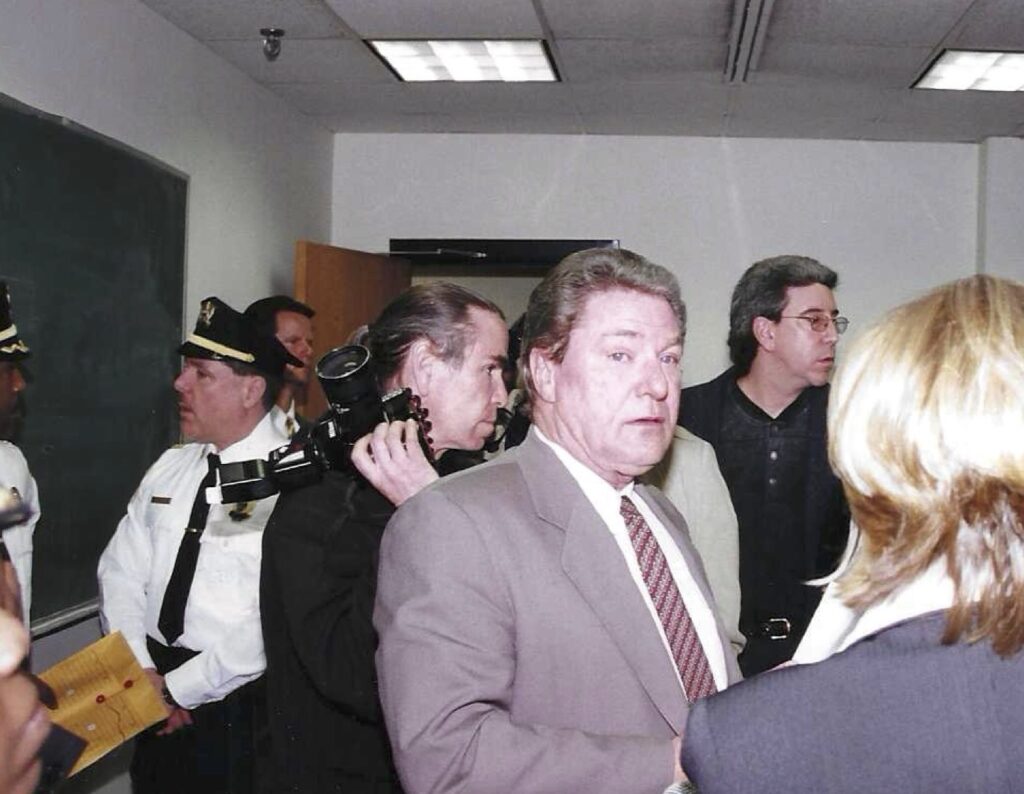1998

There are disputes over how the hearing on Casati’s mis/conduct might be conducted, as the panel convened to hear testimony is composed of his former colleagues.57 Notably, these include Officer Gerald Pleasent, who was the object of much controversy thirty years prior for physically intervening when a White officer behaved violently towards a young Puerto Rican woman.58 The department sided against Pleasent and suspended him, inciting public outcry from the Black and Puerto Rican communities which led to his eventual reinstatement. Pleasent became a representative of the potentiality of militant anti-racism within blue lines, so his role in Casati’s discrimination hearing indexes a tension within Hartford policing as the space for cultural change narrowed over the end of the twentieth century.
The seemingly unified disapproval of Casati’s actions by a majority of officers in the 472-member police department highlights the especially problematic nature of Casati’s comments becoming shared knowledge. This public condemnation similarly speaks to the crisis of such language becoming public, as many of the same officers who denounce Casati’s speech also make reference to the department-wide culture that condones it. During testimony, one of Casati’s accusers says “the language was ‘fairly common at police headquarters.’”59 It is evident that the department’s condemnation of Casati is rooted more in the horror of their internal culture’s becoming widely known than the actual language itself. Alongside the ongoing disciplinary hearing into Casati’s actions, Casati continues in his role as police captain, following his demotion from deputy chief by Chief Croughwell the year prior. Many find a mere demotion to be far too lenient of a response. Croughwell’s protection of Casati is indicative of the wider mantle of police loyalty, the structural shield that preserves authority even when individual officers may see wrongdoing.
Complicating the crises within the HPD, two Hartford sex workers accuse multiple officers of abusing them over the past two years. The officers would demand services in return for lenience on prostitution charges, assuming that no one would believe the women were they to report the behavior. The accusations were taken seriously, inciting state and federal investigations which would continue into the following year. In the end, four officers are federally indicted on criminal charges. The scandal would haunt the department for years to follow.60
Notes
57. Maxine Berstein, “8 Officers May Testify Against Casati,” Hartford Courant, January 14, 1998, ProQuest.
58. See “Hartford Police and Community 1970,” CCP.
59. Tina Brown, “Former Deputy Chief Reinstated an Arbitrator Has Ruled That Despite Allegations of ‘Obscene Gutter Talk,’ the City Failed to Prove that Caption Robert J. Casati Created a Hostile Working Environment,” Hartford Courant, May 16, 2000, ProQuest.
60. Tom Condon, “Police Chief Needs to Take Charge,” Hartford Courant, October 4, 1998, ProQuest. See also Helen Ubinas, “A Prostitute’s Tale Of Police Abuse: Woman’s accusation that two Hartford Officers Sexually Assaulted her is at Center of Federal Corruption Investigation,” Hartford Courant, January 24, 1999, ProQuest. See also “Overhaul The Police Department,” Hartford Courant, April 8, 1999, ProQuest.
